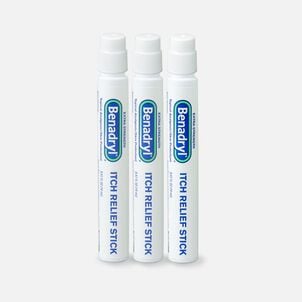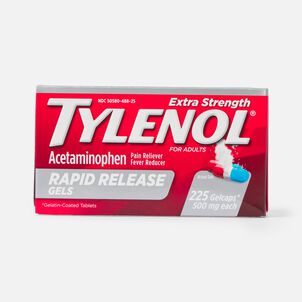Allergy season is coming and your FSA is nothing to sneeze at
Allergy sufferers, unite. No one understands our pain like another sneezing, sniffling, watery-eyed counterpart. While you may be dreading the upcoming pollen – I mean, spring – season, there are ways to help lessen the allergy blow. (See what I did there?)
As always, first see a doctor before changing your medication routine. But if you're one of the 50 million Americans who deals with allergies each year, you might have some success with our own FSA-eligible fixes. Speaking of doctors...
Get tested
First, you need to establish what you're actually allergic to. Allergy testing, while sometimes tedious, can be a great way to figure out your allergy triggers and help you avoid – or treat – them in the future.
Keep in mind that an allergy test usually isn't done during an initial visit. You'll likely have to visit your general practitioner, who will refer you to an allergist if your allergy symptoms aren't eased by over-the-counter medication. During your first visit with the allergist, he or she will delve into your family history and your allergy symptoms before jumping to any allergy testing.
Allergy testing, which is both FSA- and HSA-eligible, can be done in one of three ways: via skin prick test, during which a small needle is inserted into the forearm or lower back. This test can detect allergic reactions of 40+ allergens, ranging from pollen to mold to pet dander, even common foods.
A skin injection test is similar to a skin prick test, in that a small amount of an allergen is injected under the skin, then examined 15 minutes later to check for a reaction. This test helps detect allergies to substances like penicillin or bee stings.
Patch testing is another method. It's used to detect contact dermatitis, which means that you have a reaction when your skin touches a certain allergen. If you opt for this test, you'll wear a patch with 20-30 allergenic extracts to determine what you're allergic to. These patches are worn for 48 hours and test for allergies to latex, dyes and even fragrances.
Steam inhalers
Before diving into medications (which are FSA eligible), consider treating your allergy symptoms with something as simple as warm, humid air. These simple machines can work wonders on clearing stuffy nasal passages and soothing congestion throughout your head.
There are plenty of FSA-eligible steam inhalers for both adults and children that can help open nasal passages, and clear the nasty buildup that causes sore throats and stuffy heads, while also alleviating some of the pain that comes with them.
Get the right medications
Let's say you've established your allergens. (For me, it's a combination of pollen, dust, and the dreaded feline friend.) Now, it's time to tackle treatment. Good news. Allergy medications are also FSA-eligible!
Allergy medications take many forms: pills, nasal sprays, inhalers, even eye drops. You've likely heard the term antihistamine. But do you know what histamine actually is, and why you're trying to avoid it?
Basically, histamine is a substance produced by your body when it comes into contact with an allergen, like pet dander. Histamine is what causes those trademark allergy symptoms. You know, the sneezing and itchy, watery eyes that make your life miserable come spring.
The most common types of allergy medications include:
- Antihistamines: Antihistamines prevent the effects of histamine by blocking receptors throughout your body.
- Decongestants: These fight off nasal congestion and act as an anti-inflammatory.
- Steroids: These prevent allergy symptoms from cropping up by blocking the body from creating histamine.
- Bronchodilators: Also known as inhalers, these help treat any breathing problems that may crop up as a result of allergies.
Ask your doctor about air filters
If you know that you're allergic to dust, pollen, or pet dander, then you may want to start with the air inside your home. An air purifier can help rid the air of contaminants. Your FSA or HSA may be able to cover all or a portion of an air purifier if you have a medical need. Speak with your benefits administrator if you think this type of expense is one that may qualify in your situation.
When is the last time you changed your home's air conditioning filter? If you can't remember, then it's probably been too long. Changing out your A/C unit's air filter can help rid your home's air of potential allergens. In fact, researchers have found that air filtration is recommended for those who suffer from allergic respiratory diseases, like asthma.
But notice that we said "may qualify" -- without an explicit medical need, verified by a doctor, filters are rarely deemed eligible. Still, that's not a "no" … just a reason to explore more options than only the obvious remedies.
-
Thank you for visiting the FSA Store Learning Center! Don’t forget to follow us for more helpful tips on Facebook, Instagram, and Twitter!


















